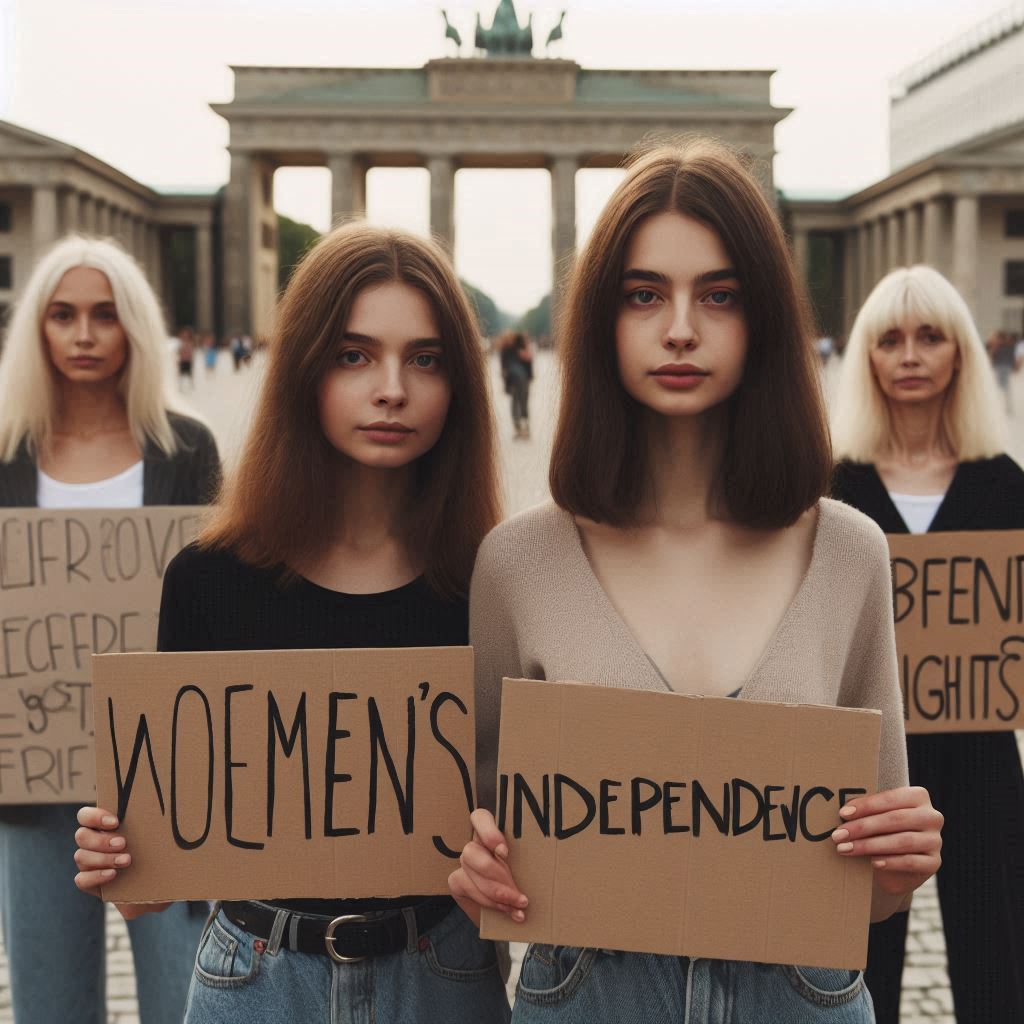
What is the 4B Movement? Understanding a Radical Feminist Movement from South Korea
The 4B Movement is a powerful, women-led movement started in South Korea that challenges traditional gender norms by boycotting marriage, dating, childbearing, and sexual relations with men. Launched in response to growing discontent with patriarchal structures, the 4B Movement — “4B” represents four words in Korean meaning “no marriage,” “no childbearing,” “no dating,” and “no sex with men” — advocates for full autonomy for women, free from social expectations associated with relationships with men.

In recent years, the movement has begun to gain attention around the world, especially in the United States, where women are expressing concerns over similar social and political issues, including gender inequality and threats to reproductive rights. For many, the 4B Movement offers a revolutionary model of empowerment in response to a society that still struggles with systemic gender biases.
Why Has the 4B Movement Sparked Interest in the U.S.?
In light of recent political changes, such as the 2024 US presidential election, there has been a surge of interest in the 4B Movement among American women. The core principles of this movement resonate with those frustrated by social and political setbacks in gender equality. The election victory of Donald Trump, a candidate who holds conservative stances on women’s rights and reproductive issues, was met with dismay among those who see it as a setback for women’s rights.
The principles of the 4B Movement offer an appealingly radical approach to American women seeking autonomy from a social structure that many find regressive.

Core Principles of the 4B Movement
The name “4B” comes from four Korean words that begin with “bi” (which translates to “no” in English):
- Bihon – No marriage
- Bichulsan – No childbirth
- Biyeonae – No dating
- Bisekseu – No sexual relationships with men
These principles reflect a choice to reject traditional expectations about marriage, family, and romantic relationships with men, which many 4B supporters believe perpetuate a system of patriarchy. Advocates of the movement argue that by breaking away from these expectations, women can achieve greater personal freedom and autonomy.
The Cultural and Economic Background of the 4B Movement
South Korea’s 4B movement has not been isolated. It is a response to long-standing cultural and economic factors that limit women’s freedom and impose traditional roles. Gender inequality in the workplace, significant gender pay gaps and social pressure to conform to family and societal expectations have led many South Korean women to seek alternatives.
South Korea’s gender pay gap is one of the widest in the developed world, with women earning approximately 31% less than men on average. In addition, many South Korean women face significant risks of domestic violence and intimate partner violence, with studies showing that one in three Korean women have experienced domestic violence. This reality has led women to reconsider traditional relationships, viewing marriage and dating as avenues that can expose them to physical, emotional and financial vulnerabilities.
Why American Women are Inspired by the 4B Movement
American women are increasingly interested in the 4B Movement because it offers a clear, unabashed stance for reclaiming control over their lives. Amid political and social challenges, including debates over reproductive rights and the rolling back of some protections for women, the 4B philosophy appeals to women who feel frustrated by the limitations imposed on them.
The movement’s influence has sparked conversations in the United States about what it might mean to take a similar stance here. Some American women on social media have also called for the adoption or adaptation of a U.S.-specific version of the 4B Movement, seeing it as a way to assert their autonomy and resist restrictive gender norms.

Is the 4B Movement Feasible in the United States?
While the 4B Movement is gaining popularity online in the U.S., questions remain about whether such a radical rejection of traditional relationship structures will find a strong foothold. American society, while evolving, still places high value on marriage, family, and traditional gender roles. However, as discussions about autonomy, independence, and equality continue to grow, a distinctly American take on the 4B Movement may very well emerge.
Some American feminists see the 4B Movement as an opportunity to reframe discussions about women’s roles and rights. If adopted in the U.S., the movement will likely need to adapt to American cultural nuances, perhaps prioritizing advocacy for policies addressing reproductive rights, the gender pay gap, and domestic violence.
What Does the Future Hold for the 4B Movement in America?
As American women search for new ways to challenge social structures they perceive as inequitable, the 4B Movement offers a revolutionary model for consideration. Although it cannot replace traditional feminist advocacy, its core principles could inspire a wave of new activism focused on reclaiming women’s autonomy and reducing dependence on traditional structures that many feel limit their freedom.
Whether American women embrace the 4B Movement as it exists or adapt it to their unique circumstances, the movement’s principles are a stark reminder of the ongoing fight for gender equality in the U.S. It also represents a global exchange of ideas about autonomy and social reform, demonstrating how a movement that began in South Korea can have profound implications for women around the world.
Finally, the 4B Movement underscores a global theme: women are increasingly questioning and resisting social norms that restrict their autonomy and self-actualization. For those seeking to reshape the future, this movement is a powerful call to action.

- Ryan Reynolds stands firm amid Blake Lively’s lawsuit against Justin Baldoni and tensions with WME
- Elementary School Horror – 7-Year-Old Child Dies in Heartbreaking Stabbing
- Panama Canal dispute – Trump’s explosive comments reignite debate
- Governor Abbott’s Bold Move – A Chilling Campaign to Deter Illegal Immigration
- Josh Hartnett Shines Brilliantly in Colleen Hoover’s Verity: An Unmissable Gripping Thriller Worth Watching
- Magdeburg: A Thrilling Journey Through History, Culture, and Innovation










